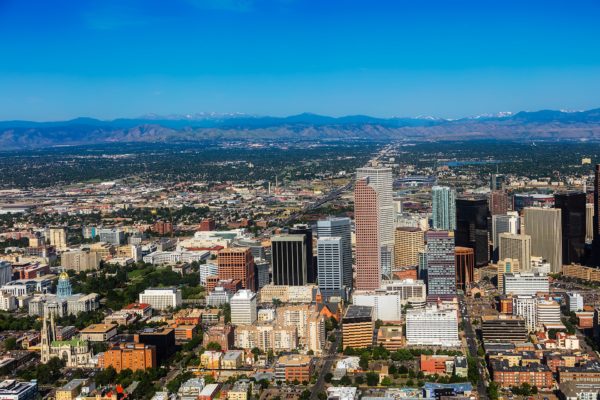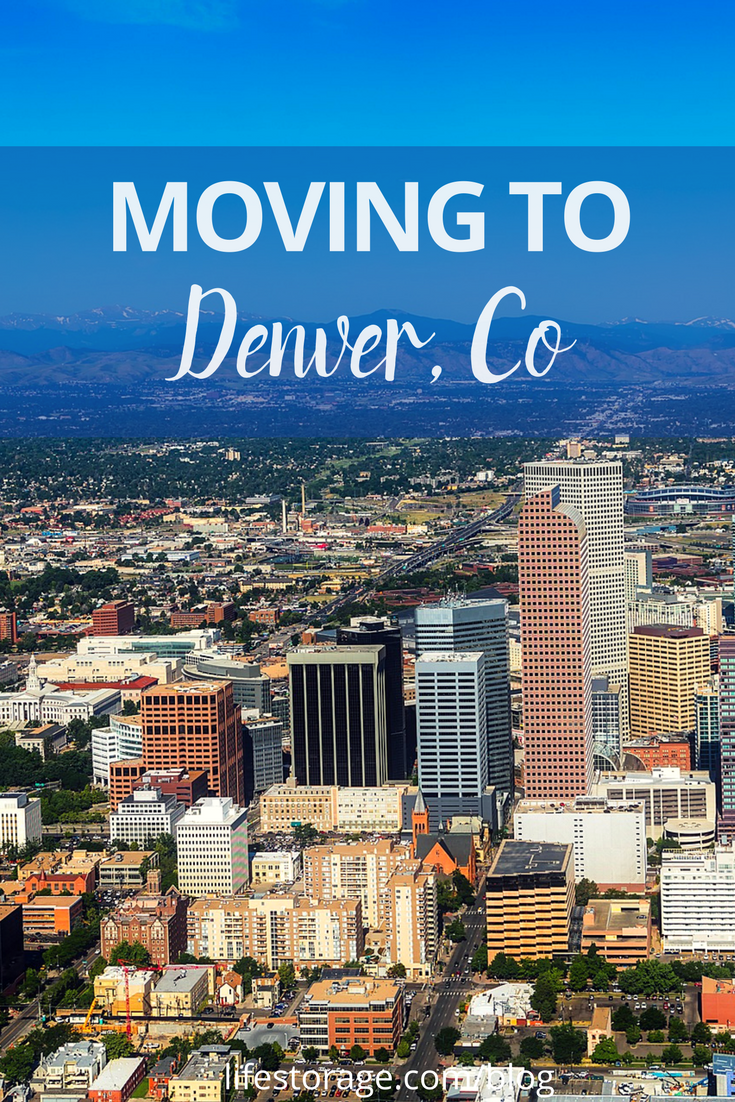
Are you thinking about moving to Denver?
In 1893, Katharine Lee Bates sat atop Pikes Peak and wrote “America the Beautiful,” one of the most well-known patriotic songs of our time. Just about 100 miles away from that summit at the base of the Rocky Mountains sits Denver, Colorado. With its blue skies and panoramic mountain views, Denver, a.k.a. the Mile High City is perhaps one of the most beautiful areas in the country. In fact, its beauty has inspired countless other authors, musicians, and pop culture icons.
Maybe this natural beauty is why moving to Denver is so appealing. Or, maybe it’s the 300-days of sun a year, easy access to the mountains and inherent outdoor playground. Either way, Metro Denver is one of the fastest-growing cities in the nation, with almost 100,000 people moving there in the past seven years. Now, with a population of over three million, the city is scrambling to develop the infrastructure, transit, and housing needed to keep pace with the demand.
Would you move to Denver? The area boasts a strong economy and a shiny, new façade that will take your breath away, both literally and figuratively. But some argue that it’s overcrowded and expensive. We’re exploring some other reasons why you might want to stay or stay away. These living in Denver pros and cons should help you decide if Denver is, in fact, the right choice for you. Have some advice you’d like to share with potential residents? Let us know in the comments below!
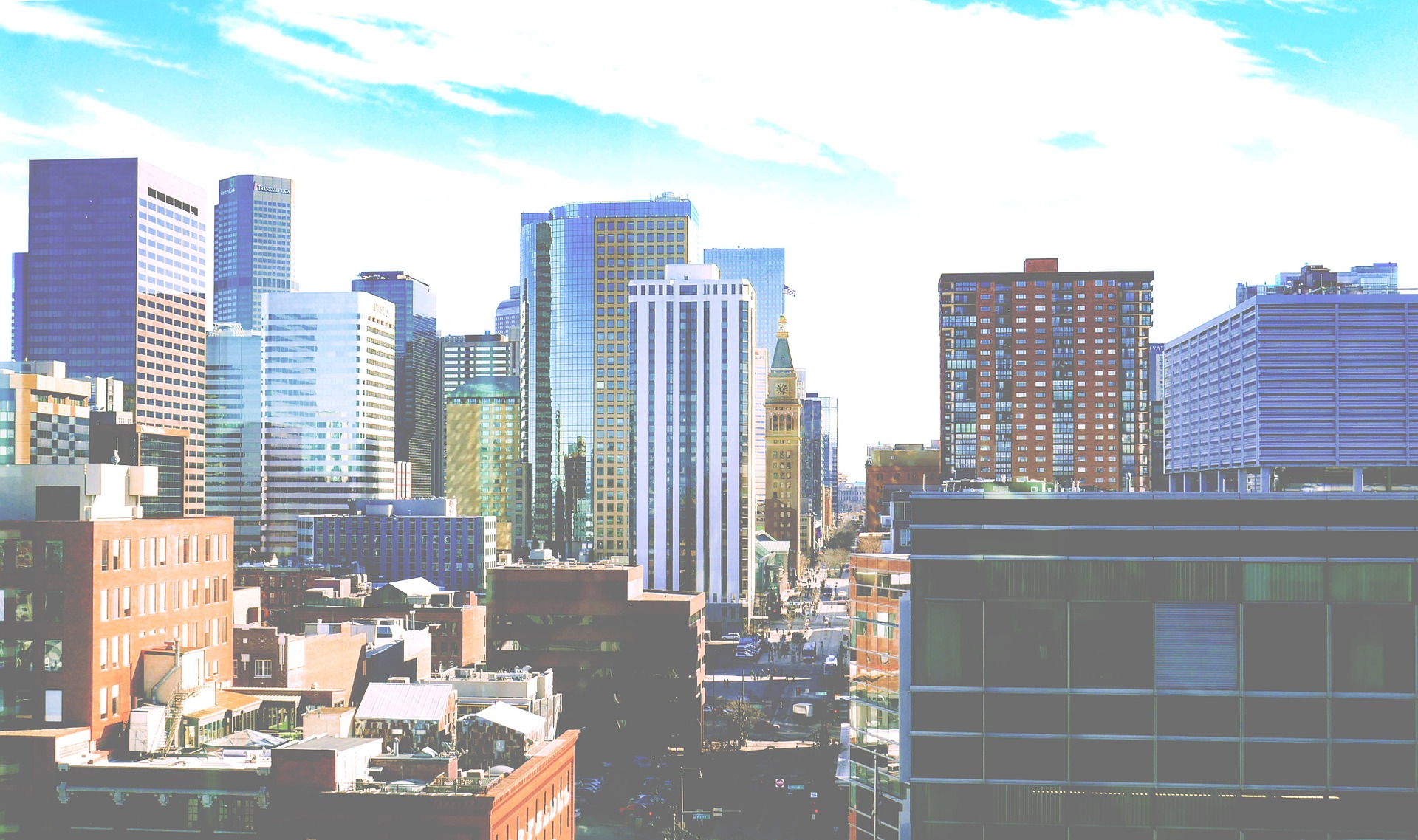
1. Denver is young, hip and desirable.
Denver is among the likes of the San Francisco Bay Area and Seattle when it comes to home price appreciation outpacing income growth and affordability. Apartments rent for an average of $1,519 a month, with median home prices jumping 10% to $420,000 in 2018.
If you can stomach the prices, one major pro of living in Denver is the views. No matter which neighborhood you choose, the metro area is surrounded by 140 miles of panoramic mountain vistas, including 200 visible peaks.
That said, the very first step to becoming a Denverite is picking a neighborhood. Living in Denver is a unique experience, and because so many people want to do it, picking a community can get competitive and pricey (more on that later). Decide whether any of the following areas suit you, then figure out if you can afford it.
Top Neighborhoods in Denver
Fast-paced living with a relaxed vibe is possible in any of the following city neighborhoods. However, each area offers a little something different, which makes picking the right one that much more important. Here are a few of the best places to live in Denver.
The Highlands
Widely accepted as one of the most desirable places to live, the Highlands, and LoHi (Lower Highlands) specifically, are teeming with innovative restaurant concepts, hip rooftops, patios and boutique shops.
Average apartment rental: $2,156
RiNo (River North)
If you don’t want to be a LoDo (Lower Downtown) Ballpark Bro, RiNo is downtown Denver’s hipster neighbor. Full of trendy warehouse conversions, street art, and an explosion of bars and restaurants, it’s the current place to see and be seen.
Average apartment rental: $1,727
Capitol Hill
A bit rougher around the edges, Cap Hill is generally regarded to be the most affordable and convenient neighborhood in city proper. Home to the Capital building, it’s major thoroughfare of Colfax Avenue is the longest street in America.
Average apartment rental: $1,519
Low Profile Neighborhoods
We spoke with seasoned broker and real estate agent, Irene Glazer of Live Urban Real Estate for some insight. “Preference on which neighborhood to choose can vary widely based on taste and budget,” Glazer explains. “Do you like urban, suburban, hip, up-and-coming, walkable, trendy, affordable, accessible to mountains/downtown, parks? Denver has a wonderful array that will fit most any lifestyle.”
Glazer gave us a sampling of a few more under-the-radar Denver neighborhoods that have their own unique charm and character.
Harvey Park
This neighborhood is located in Southwest Denver and is bounded by South Sheridan, Hampden, Lowell, and Jewell. Built in the 1950’s, it’s known for its selection of some of Denver’s best and most affordable, mid-century modern architecture. Cliff May-style California Contemporary homes fill the neighborhoods’ quiet, suburban-like streets.
Average home prices: in the low $400,000s.
Platt Park
This area is located in Southeast Denver and is bounded by Downing, Broadway, Evans, and I-25. Platt Park is seeing many of its older homes remodeled for 21st century living as well as quite a few new builds and pop-tops. The neighborhood is lovely, charming, and walkable with one of the quaintest shopping districts, South Pearl Street. Don’t miss the summertime Farmer’s Market because it’s arguably the best in the city.
Average home prices: around $500,000.
Sunnyside
Located in Northwest Denver, Sunnyside is bounded by I70, 38th, Federal, and I25. It’s an up-and-coming neighborhood near trendy Tennyson and is already pretty well discovered, yet still in transition. It’s easy to take a bike ride or a walk downtown, and there is easy access to get out of town. This area has a wonderful mix of old architecture as well as new (mostly attached) homes. Trendy coffee shops, restaurants, boutiques, and home goods stores are starting to pop up everywhere.
Average home prices: in the $500,000s.
Denver Suburbs to Consider:
Denver is a good place to raise a family if you have the right resources, like a stable job and a steady income. Bringing some kids along for the move? Check out some of these top rated Denver suburbs.
- Stapleton – Stapleton is a new neighborhood that popped up a few years ago built on the old airport base. Its proximity to the city and relative affordability of new builds makes it a popular option for young families.
- Arvada — Olde Town Arvada has one of the cutest “Main streets” of any suburb. Its popularity has also caught on the past few years, driving up home prices.
- Englewood — This is a suburb with a lot of variety. Englewood has small, affordable homes with character located near the fun and funk of South Broadway, suburban “tract” style homes near the Denver Tech Center and sprawling mansions in Cherry Hills Village.
- Wheat Ridge — Close enough to the city yet a world away, Wheat Ridge is a natural expansion from NW Denver. There’s tons of new development happening on 38th Ave., with breweries and restaurants clamoring to get in on the action.
2. Denver is becoming a major city.
There are so many opinions out there as to whether or not living in Denver is affordable. Some stats say yes it’s affordable (compared to metros like New York City), but rapidly increasing rental prices and fast-selling homes say otherwise. While living in Denver is much more affordable than living in places like Los Angeles, it’s still relatively pricey. For instance, the median home cost in Denver is $421,900, which just about doubles the national average of $216,200.
Before moving to Denver, make sure you’re able to spend within your means, which means allotting no more than 30% of your salary to housing costs. If you’re looking to buy or rent before relocating, make sure you give yourself plenty of time. Finding a place is highly competitive so most people use a rental agent. If you opt to rent, make sure you know your rights as a Colorado tenant.
Denver Housing Market Stats
Irene Glazer also helped us understand just how the housing market has changed over the past few years. Here are some highlights:
The Denver housing market has been appreciating at a double-digit clip since we started our climb out of the recession in about 2013. This past year we saw a bit slower appreciation of about 8%.
Our average sold price in metro Denver finished out at approximately $475K in 2017, and the prediction is that we will be around $500K by the end of 2018.
Inventory is still the biggest buzzword, and we are still extremely short on it, without a reprieve in sight.
We are about to enter the “Market Compression” phase in our annual real estate cycle where demand picks up before homes are listed, creating our early spring frenzy. This creates additional challenges as inventory levels typically continue to fall through January. If demand picks up, multiple offers, bidding wars and heightened flash sales could accelerate pricing earlier than expected in 2018.
Not sure whether you should rent or buy? According to Glazer, weighing expected appreciation, even at modest rates of 6% (Denver’s historical average), against impending rent increases, it is still more advantageous to own vs. rent in the Denver market.
3. The cost of living in Denver won’t break the bank, yet.

The biggest hurdle new residents face when moving to Denver is housing costs. Other than that, most cost of living expenses are more or less comparable to other cities.
Cost of Living Factors:
- Taxes — Property taxes are relatively low, sales tax is high, and income tax falls right in the middle at 4.63%.
- Health Care — Costs about 17% more than the national average.
- Groceries — You’ll pay about 4% less than the national average.
4. Denver’s economy is booming.
Higher paying jobs are available in Denver because so many top companies want to be based here. However, that means the competition for a quality job is that much more intense. Also, wages in Denver might not be as high as they need to be to afford the cost of living.
The average median income in Denver is $57,773, which is about 6% less than than the national average. Even if you can afford to live in Denver today, it’s important to note that average salary increases aren’t keeping pace with rising rents.
This discrepancy between rising housing costs and stagnant salaries could cause an issue a few years in and force a move further outside the city. Make sure you have a job in hand and some additional savings before relocating to this highly desirable area.
Top Denver Industries & Companies:
- Tech — The startup scene is exploding with companies like Baker Technologies and more established companies like Google and HomeAdvisor.
- Aerospace —Denver is keen on becoming “Aerospace Alley” (their play on Silicon Valley) with major companies like The Boeing Company, Raytheon, and Northrop Grumman located here.
- Agriculture — Colorado’s food and agriculture industry generates more than $5 billion a year, with companies like Love Grown Foods, Leprino Foods, and Nutrien leading the charge. Colorado also ranks third in the nation for craft beer sales and production.
- Casual Concepts — Noodles & Company, Smashburger, Qdoba, Quizno’s, and Boston Market are all headquartered here.
- Marijuana – Cannabis is a big business, bringing in more revenue than some small countries.
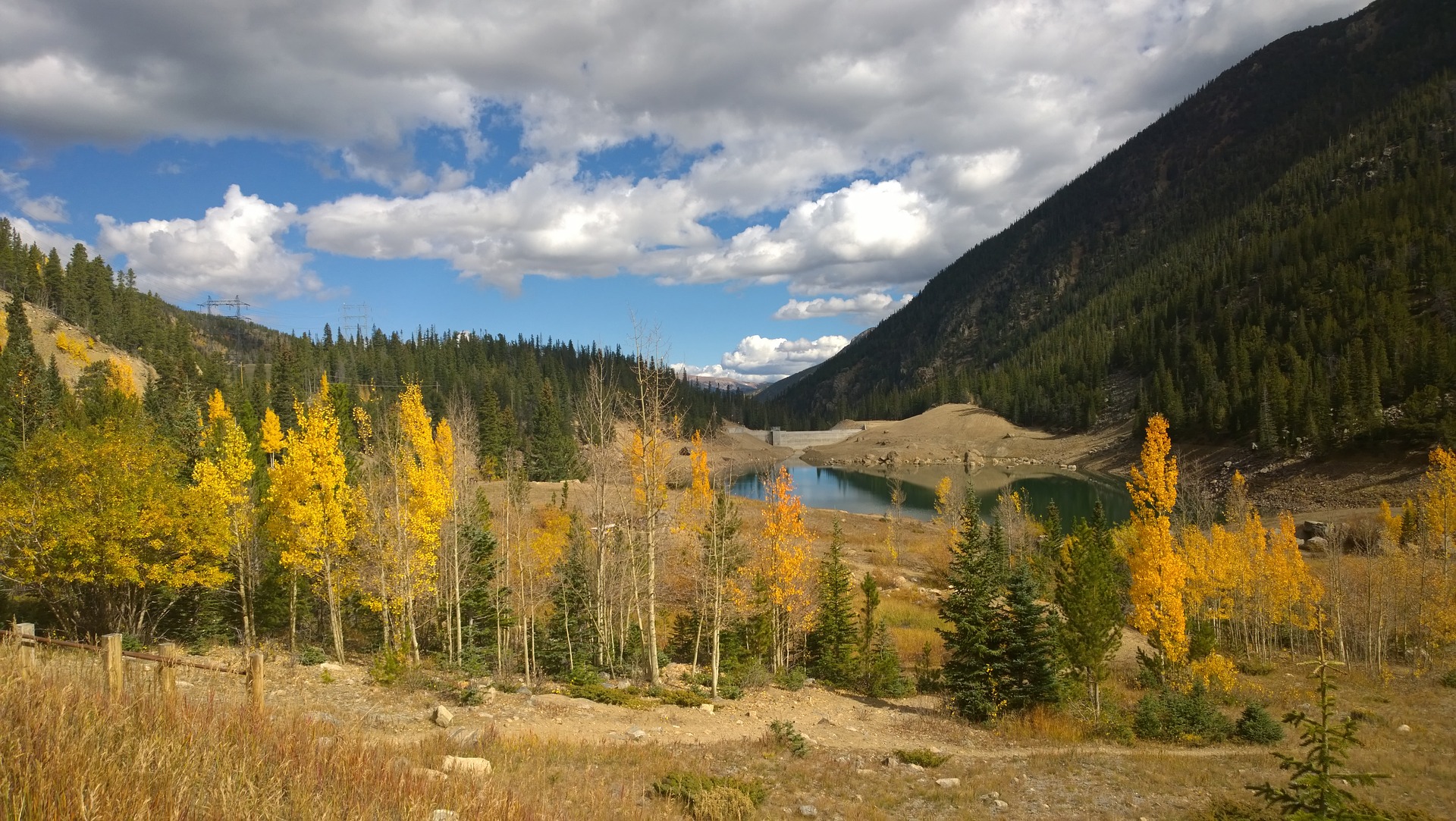
5. Once you adjust to the altitude, the weather is incredible.
The quality of life in Denver is highly desirable, once you get used to the lack of oxygen. Contrary to popular belief, Denver is not located in the Rocky Mountains. It is a mile or so above sea level, though (5,280 feet, to be exact), and that can take your body some time to adjust. For most people, the pros far outweigh the cons as far as weather is concerned.
What It’s Like Living in Denver:
- There are an estimated 300 days of sunshine every year. Even though the summers are hot, they lack humidity, which makes them more comfortable.
- The sky is bluer and the stars are brighter than other parts of the country due to the high-desert climate and elevation.
- Some of the top weekend vacation destinations are located within a few hours of Denver.
- The temperature can rise or fall by 40 degrees in a day due to the altitude, so always dress in layers.
- Since the air is thinner, there are lower levels of oxygen, which can take a toll on your body if you’re not used to it or have an ongoing medical condition.
Tips for Becoming Acclimated to the Altitude:
- The air is dry, which can dehydrate your body if you’re not drinking enough water. Make sure to drink more water than you normally would, and always have chap-stick handy.
- Take it easy upon arrival. If you plan to do any mountain activities, give your body a few days to adjust.
- Make sure to get enough sleep if the altitude makes you feel drowsy.
- At higher elevations, the sun is more intense, so always wear sunscreen.
6. Traffic can be a challenge in and out of the city.
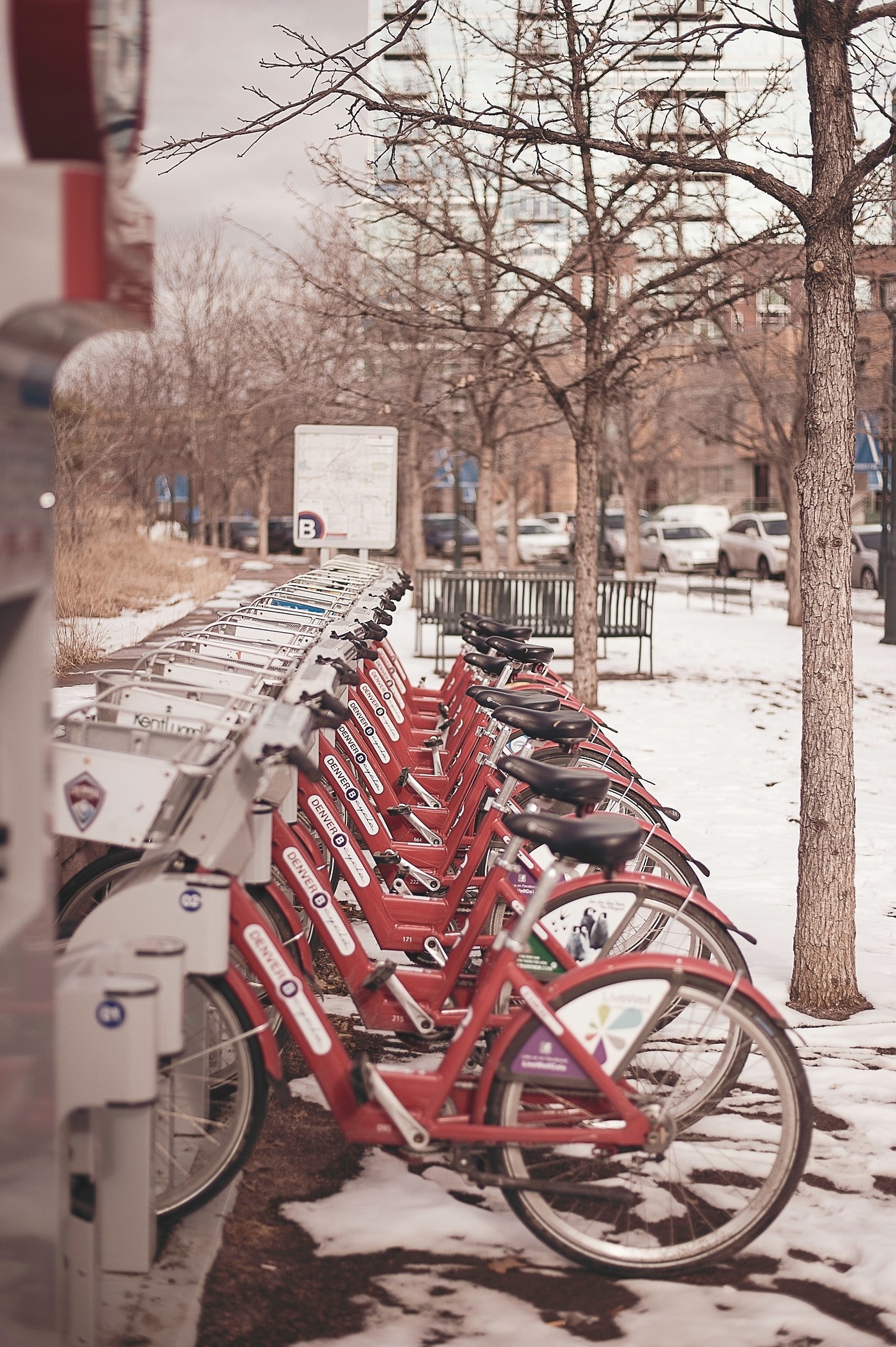
One difference between Denver and other large cities is the amount of weekend traffic headed out of the city toward the mountains. Ski traffic is something you’ll want to account for if you move here since Denver is situated 75 miles or so from dozens of world-renowned ski resorts. Expect heavy traffic on Friday evenings and Saturday mornings in the winter. Making your way along the I-70 corridor into ski country can be a quick 1.5-hour drive or a slow 6+ hour crawl, depending on the season, the day of the week and the time of day.
But that isn’t the only time you’ll run into traffic in Denver. Since the city exploded with growth in the past decade, traffic within the metro can get congested too. Luckily, Denver is geographically small so getting to and from anywhere should take about 20-minutes during non-rush hour periods. Also, if you live and work in the downtown area, biking and various scooter options are a viable way to commute.
Tips for Getting Around:
- Be careful where you park. Many side streets have restricted days to accommodate street sweeping.
- Consider getting a car with four-wheel drive or one that can handle more rugged mountain driving and varied weather conditions.
- The city added new light rail lines in 2016, including one that goes to the airport. Other light rails connect some suburbs to the city.
- Denver is a highly bike-friendly city. It’s estimated that between 6-7% of downtown employees commute to work by bike.
- You can also rent B-cycle bikes from docks around the city, either by the hour or by day.
7. Denver is a beer destination and is on its way to becoming a food destination.
Craft brew fanatics will love that Denver is home to the second most microbreweries next to Portland. In fact, the area has been coined as the Napa Valley of Beer. But if you’re looking to enjoy a pint or two during happy hour, remember to drink some water too. If not, you might feel buzzed sooner than you would in cities closer to sea level. Beer can have more of an effect due to thin air.
We spoke with Editor of Rocky Mountain Food Report, Dionne Roberts, on how the food and drink scene has evolved. “Denver’s craft culinary and beverage scene continues to show rapid growth with the influx of diverse and gifted chefs, brewers and distillers,” Roberts explains. “More people want to be a part of the mountain culture and that adds depth to the growing number of options and cultivates a higher sense of quality in the cuisine.”
Roberts also shared with us some recommendations for potential residents to visit while in Denver.
Places to Drink:
- First Draft — A place to try dozens of local microbrews all under one roof. At First Draft, you’re given a swipe card to pour your own tastings.
- Black Project Spontaneous & Wild Ales — Specializes in unique, blended, and barrel-aged sour beers with industrial airplane-esque decor and meticulous brewing processes.
- Epic Brewing Company — Offers a fun, community tasting room with a lineup of dozens of flagship and elevated craft beers.
- Black Shirt Brewing Company — Relays an approachable rock n’ roll edge in their stylistic, aptly-named beers, live music performances and funky brewery atmosphere.
- My Brother’s Bar – So old it’s been operating since before Colorado was officially a state, Jack Kerouac, Neal Cassady and Allen Ginsberg all hung out here.
- Death & Co – If you get tired of beer, this NYC outpost has a literal bible of craft cocktails in the swanky Ramble Hotel.
- Williams & Graham – Denver is also huge on speakeasies, with Williams & Graham named one of the top 50 cocktail bars in the world. The coolest part? You have to walk through a bookshelf to find it.
- Great American Beer Fest — This fall festival has the largest variety of beer served of any public tasting across the country. You’ll be hard-pressed to try them all, since there are over 800 breweries and thousands of beers present. Buy your tickets immediately when they go on sale, as they do sell out in minutes.
Places to Eat:
- Euclid Hall — Located in the heart of Larimer Square with a focus on elevated pub fare, a great ambiance and thorough attention to providing locally sourced ingredients.
- AVANTI Food and Beverage — Denver basically pioneered the food hall concept, and AVANTI was one of the OGs for its killer rooftop. All vendors have short-term leases as a way to test pilot their concepts.
- Beatrice & Woodsley — A whimsical, cozy restaurant with a seasonal craft menu on Broadway that boasts a fairy tale interior perfect for date night or intimate gatherings.
- Snooze – Brunch is serious business in Denver, and local chain Snooze is always slammed. Expect to wait about an hour for their signature pancake flights.
- Linger – A former mortuary turned “eatuary,” Linger serves innovative, international small places. Don’t miss the vintage VW bus on the roof and one of the best skyline views of the city.
- The Buckhorn Exchange – A National Historic Landmark, the Buckhorn Exchange received the state’s first liquor license and pays homage to the state’s game meat culture. If you’re brave, it’s also the place to try Rocky Mountain Oysters.
- Tavernetta – The newly revamped Union Station has really become a must-see destination and hotspot. While all the restaurants are good, Tavernetta is elevated Italian cuisine worth seeking out.
- TAG – Troy Guard is one of Denver’s most beloved chefs. His first outpost has unique fusion dishes, like Hamachi with pop rocks.
- Tacos Tequila Whiskey – Ask anyone what Denver’s staple cuisine is, and taquerias are definitely part of the narrative (along with green chile).
- 16th Street Mall — Located in downtown Denver, this one-mile pedestrian section is packed with tons of cafes, brewpubs and restaurants. After a night out, play one of the ten public pianos on display. It’s a bit touristy, but a must-see for first-timers.
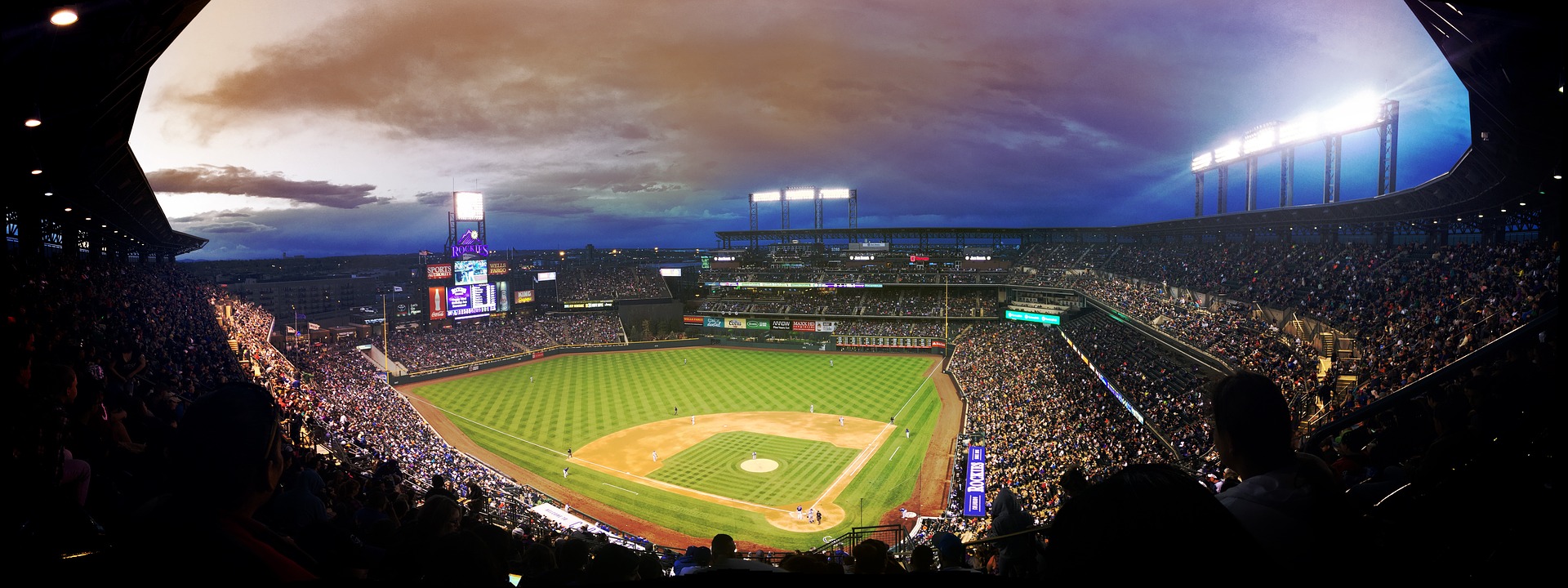
8. There are plenty of fun things to do in Denver.
Relocating to Denver is a much more enjoyable experience when you know there’s a ton you’ll want to do once you arrive. Do any of the following interest you enough to start packing up your belongings and heading to Denver?
Professional Sports Teams:
- Denver Broncos — One of pro football’s biggest winners since the merger of the American and National Football Leagues in 1970, this team boasts some of the most loyal, enthusiastic fans in the entire sporting world.
- Colorado Rockies — Coors Field has jokingly been called the best bar in Denver, so even if you’re not a baseball fan, the stadium is worth a visit. Plus, there are dozens of bars, pubs, and restaurants located just a block or two away from home plate.
- Colorado Avalanche — This favorite among NHL teams won eight division title games in a row—the longest streak in the league. Home games at the Pepsi Center are legendary for extreme volume and for terrifying the visiting team.
- Denver Nuggets — Although this team has yet to reach the championship round in the NBA playoffs, they are known as fierce contenders and are never short on colorful characters.
Attractions and Fun Things to Do:
Activities

- Top Golf — Spend a leisurely day hitting some golf balls further than you normally would. No, really. Due to the high altitude, golf balls can reportedly go up to 10% farther!
- The Denver Skatepark boasts 60,000 square feet of terrain for every age and skill level, providing the perfect setting for family-friendly fun in the sun any day of the week. Admission is free and the park presents challenges to BMX-ers, boarders, and bladers alike.
- An abundance of world-class retail districts beckon shopaholics of every stripe. Larimer Square and the 16th Street Mall present eclectic, urban extravaganzas while Cherry Creek, South Broadway, and Antique Row feature everything from high-end couture to must-have treasures waiting to be discovered in one-of-a-kind boutiques.
- Denver Parks and Recreation maintains a welcoming network of open spaces, rec centers, bike trails, and golf courses that help residents take full advantage of the 300+ days of sunshine a year. Nearly 20,000 acres of urban parks and designated mountain areas make getting in shape and staying fit less of a chore and more of an outdoor adventure.
Culture & Sights
- The Stanley Hotel — Horror fanatics should take an hour trek outside of Denver to visit this historic landmark that inspired Stephen King’s 1977 bestseller, The Shining. Want a glimpse into the paranormal? Take their Night Spirit Tour and explore some creepy spaces.
- Red Rocks Amphitheatre — Chances are, if you want to see one of your favorite big-time musicians live, they will have played at Red Rocks. The most acoustically perfect outdoor amphitheater in the world, music of all genres sounds incredible here and the breathtaking views are unforgettable.
- Denver Performing Arts Complex (the DCPA) — Enjoy a variety of seasonal events on this four-block strip, like Broadway Theatre, ballet, and opera.
- The Mile-High City boasts an amazing array of museums for culture buffs including the Denver Art Museum, the Denver Museum of Nature and Science, The Molly Brown House Museum, and the Museum of Contemporary Art Denver, among others. Meanwhile, the adventure-curious can seek thrills at the Downtown Aquarium and the Wings Over the Rockies Air and Space Museum.
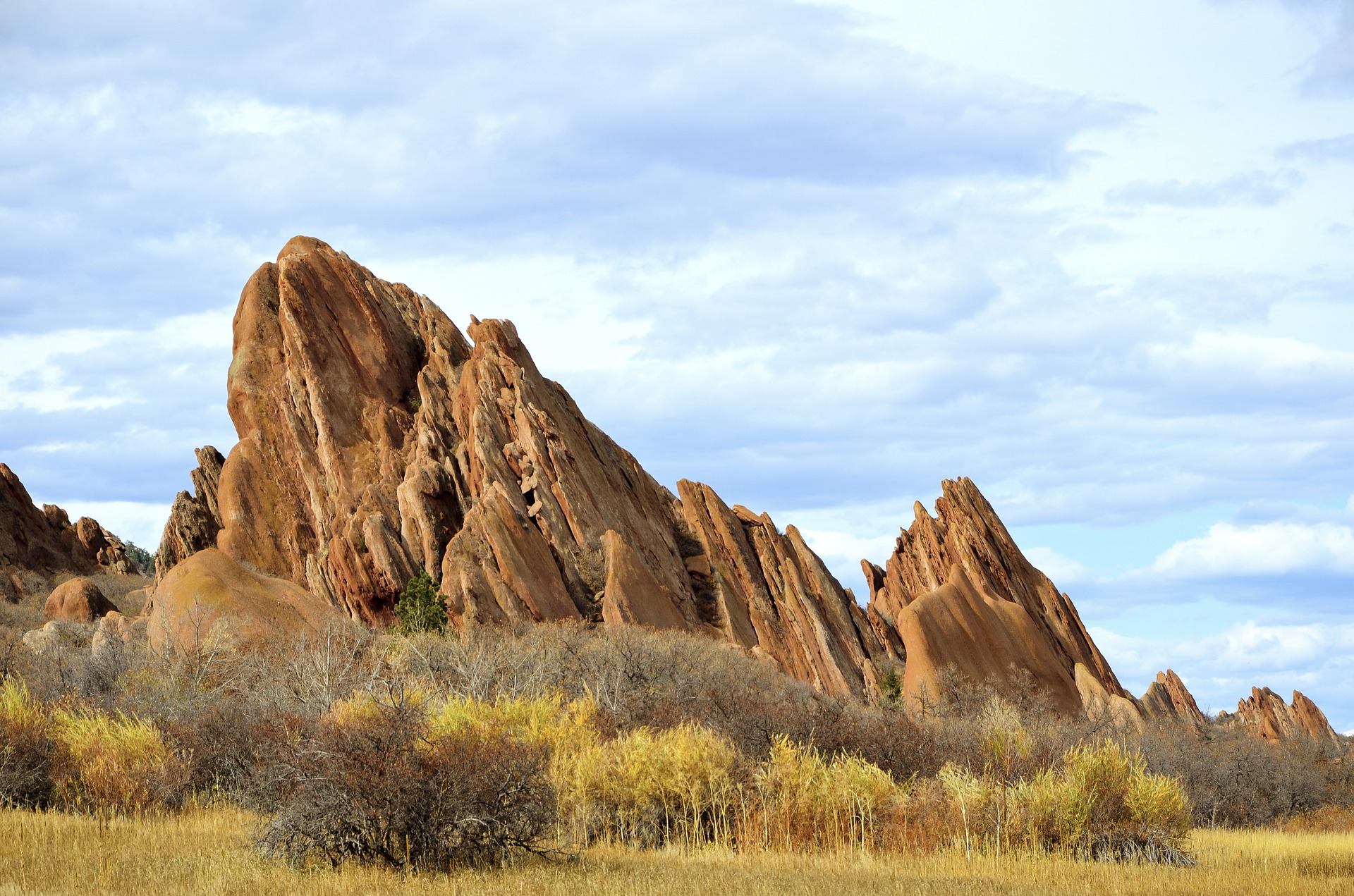
9. Taking advantage of the great outdoors is easy all year.
Denver is the ideal location for adventure seekers looking to explore thrilling mountain peaks and valleys. But you don’t have to be an adrenaline junkie or avid skier to enjoy outdoor life in Colorado. There are dozens of day trips suitable for the entire family all year round.
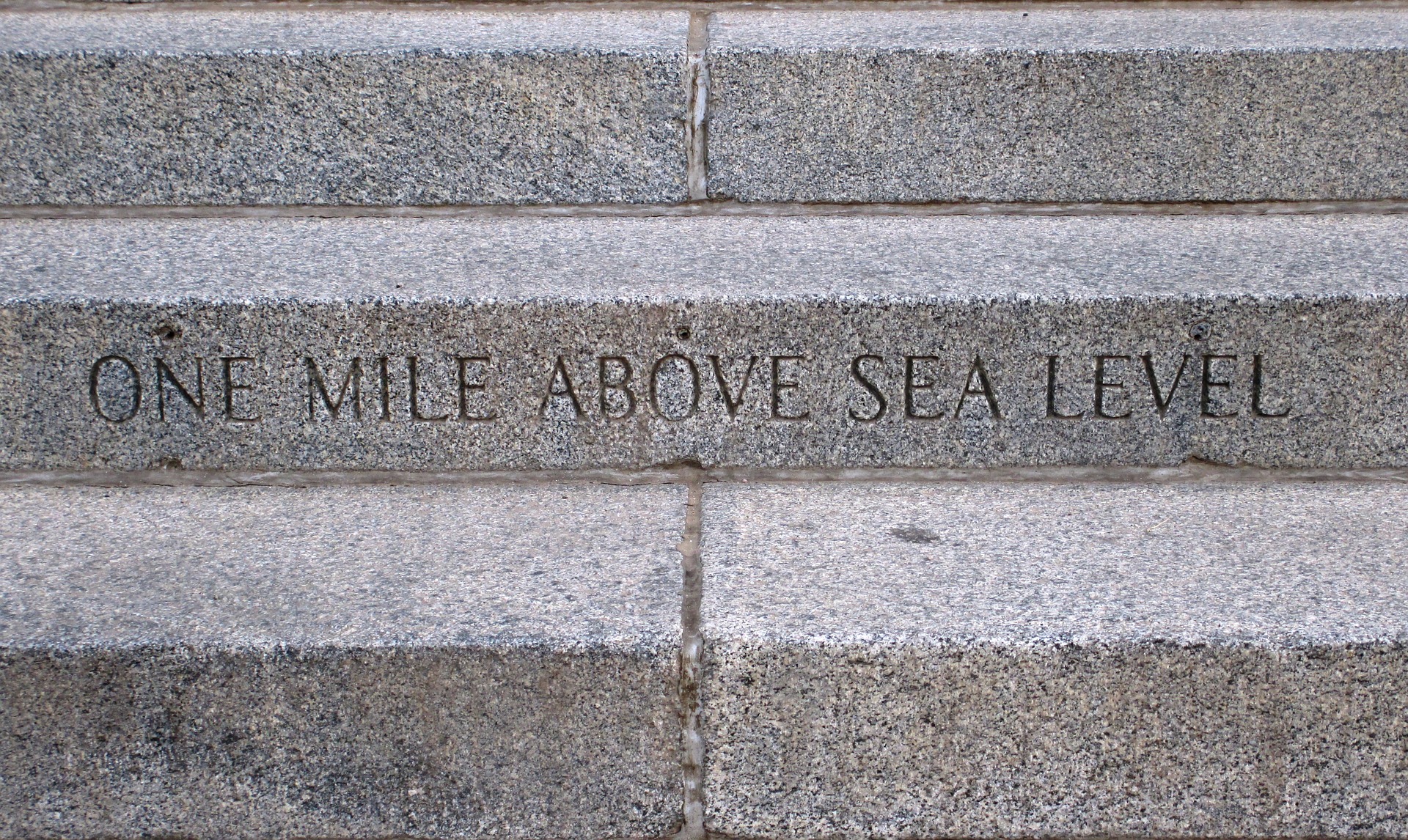
Green Spaces in the City:
- Washington Park — Take a pedal boat across Smith Lake for a perfect afternoon with the family.
- City Park — Hike the Mile High Trail in this park and get a five-kilometer workout exactly one mile above sea level.
- Confluence Park — Take a kayak out and explore man-made kayak chutes located minutes from downtown.
- Cherry Creek Bike Path – A 42-mile paved pathway that starts in downtown Denver, you could bike for a few hours or make the day of it.
Ski Getaways:
- Vail Mountain Resort — There are 5,289 acres of skiable slopes at this legendary ski spot.
- Breckenridge – With five peaks in one resort, travelers come from all over the world to ski Breck.
- Winter Park — This is the longest running ski resort in Colorado with over 3,000 acres of award-winning terrain to explore.
- Copper Mountain – One of the more local resorts, Copper’s naturally divided terrain is a great place to learn and perfect your turns.
Outdoor Adventures:
- Rocky Mountain National Park — Denver’s most accessible national park, RMNP is 415 square miles of protected mountain land. Drive Trail Ridge Road for epic views and hike the acclaimed Dream Lake.
- Mount Evans — Climb the highest paved road in North America and eventually reach the summit at 14,260 feet.
- Rocky Mountain Ziplines — Zip through sections of the Rocky Mountains and take in the sights on over 6,000 feet of cable.
- Clear Creek Whitewater Rafting – The closest whitewater to Denver, ride the rapids for a real adrenaline rush.
- Glenwood Springs – Colorado has more than 30 hot springs, which are a relaxing year-round getaway.
- Private Foothills Tour — Take a four hour trek through the Foothills of Denver. There are many stops built into the tour. If you have kids, make sure to stop at Dinosaur Ridge, which is optional.
10. Marijuana is legal, but public consumption is not.
This may come as a shock if you’re moving to Denver from a Tenessee or a South Carolina. Colorado was the first state to legalize recreational marijuana, which might not impact your life in Denver as much as you think. You may smell it, but you’ll rarely see people partaking, as it is still illegal to smoke in public. According to a survey by the Colorado Department of Public Health, only 13.6% of residents partake in recreational marijuana use, and fewer of them smoke every day. While this figure is much larger than the national average, some argue that many pot smokers in other states keep their habit behind closed doors. Regardless of where you stand on this issue, there are some things you should know, as that Rocky Mountain High is a big part of life in Denver.
Marijuana Etiquette:
- Dispensaries are identified with green crosses that look like pharmacies. “Bud-tenders” will walk you through the buying process and explain the effects the different strains may have on your body (Sativa, Indica, and hybrids).
- If you wish to smoke pot in your home, make sure it is allowed in your lease agreement before you light up.
- You must be over the age of 21 to buy and consume pot in Colorado.
- Public use of marijuana is illegal, so don’t expect to find people lighting up in the streets.
- Certain hotels and AirBnbs restrict the use of marijuana on their premises, so be sure to find a smoker-friendly establishment if you’re planning a trip and wish to smoke.
- Just because marijuana use is legal doesn’t mean your boss has to agree. Your company can administer drug tests and create policies banning the use of marijuana.
- The marijuana industry is very innovative and there are many ways to experiment with its effects without actually smoking. Topicals, edibles, and vaping are all extremely popular.
- If pregnant, the CDPH advises strongly against the use of marijuana. If any newborn baby tests positive for THC, the hospital is advised to contact child protective services.
11. Denver is a regional epicenter of excellence in all levels of education.
- Several school districts across the city have been nationally recognized for educational leadership including Cherry Creek School District, Boulder Valley School District and Littleton Public Schools.
- Higher learning institutions are plentiful, including an array of four-year schools including the University of Colorado Boulder/Denver, Regis University, and Colorado School of Mines, among others.
- An abundant variety of trade schools offer focused learning for specific trades. Residents can embark on educational journeys towards new careers at Johnson and Wales University, and the Emily Griffith Technical College, to name a few.
Make relocating to Denver a relatively simple process.
If you’re planning a move to Denver, creating a checklist of everything you need to do can be helpful. In order to be considered a resident of Denver, you must be employed, own a business, or reside in Denver for at least 90 days. Don’t forget some of these essential steps to becoming a Denverite.
Moving to Denver Checklist:
- Before registering your car, update out of state vehicle titles using this form. Be sure your car will pass the required emissions tests before bringing it into the state. If not, you may have to sell the car before you move.
- Transfer your license within 30 days and register your car within 90 days at the DMV.
- Decide whether or not you want to update your organ donor status.
- Register to vote in Colorado online.
- Learn about the requirements for residency as it relates to higher education.
- Change your address and have your mail forwarded using this form from the USPS.
- Sometimes relocation dates don’t match up exactly. If your belongings arrive before you have access to your home, consider renting monthly self storage.
Practical Tips for Moving Day:
- Like all growing cities, Denver experiences
- If you are renting, moving into a smaller property, or waiting for construction on your new home to be completed, renting monthly storage near Denver is a safe and easy way to keep your items stored away for the time being. Contact us to learn more about same day rentals and getting your first month free on select units.
We hope you learned a thing or two about life in Denver. Would you ever move here? Do you have some insight you’d like to share? Let us know in the comment section.
Updates:
- Revised July 13, 2020, with new information from Denver expert, Luke Schmaltz.
- Revised January 10, 2019, with new information from Denver expert, Lauren Monitz.
- Originally published on February 2, 2018.
